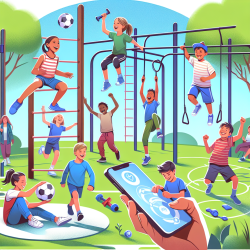Recent research from the Canadian Journal of Speech-Language Pathology and Audiology, titled Temporal Processing Performance, Reading Performance, and Auditory Processing Disorder in Learning-Impaired Children and Controls, sheds light on the intricate relationship between temporal processing abilities and reading performance in children with learning impairments (LI). This study, which compares the performance of 38 children with LI to 32 typically developing controls, provides critical insights that can help practitioners enhance their therapeutic approaches.
Key findings from the study indicate that children with LI exhibit poorer performance on reading and phonological awareness tasks, as well as on temporal processing tasks that require the relative timing of two stimulus events. Notably, the study highlights that relative timing judgments of auditory and visual stimuli play a crucial role in reading development.
Implementing Research Findings in Practice
For practitioners, the implications of these findings are significant. Here are several strategies to consider:
- Focus on Relative Timing Tasks: Integrate exercises that emphasize the relative timing of auditory and visual stimuli. For instance, activities that require children to identify the order of sounds or visual cues can help improve their temporal processing skills.
- Phonological Awareness Training: Enhance phonological awareness through targeted exercises. Phonological tasks such as blending sounds to form words or segmenting words into individual sounds can be beneficial.
- Multisensory Approaches: Utilize multisensory approaches that combine auditory and visual stimuli. This can help reinforce the neural pathways involved in reading and language processing.
- Early Identification and Intervention: Early screening for temporal processing and phonological awareness deficits can lead to timely interventions, potentially mitigating the impact of these impairments on reading development.
Encouraging Further Research
While the study provides valuable insights, it also opens the door for further research. Practitioners are encouraged to explore the following areas:
- Longitudinal Studies: Conduct longitudinal studies to understand how temporal processing abilities develop over time and their long-term impact on reading and language skills.
- Intervention Efficacy: Investigate the efficacy of various intervention strategies aimed at improving temporal processing and reading performance in children with LI.
- Multimodal Processing: Examine the role of multimodal processing (auditory and visual) in reading development and how it can be leveraged in therapeutic settings.
By integrating these research findings into practice and continuing to explore new avenues of study, practitioners can make data-driven decisions that lead to better outcomes for children with learning impairments.
To read the original research paper, please follow this link: Temporal Processing Performance, Reading Performance, and Auditory Processing Disorder in Learning-Impaired Children and Controls.










